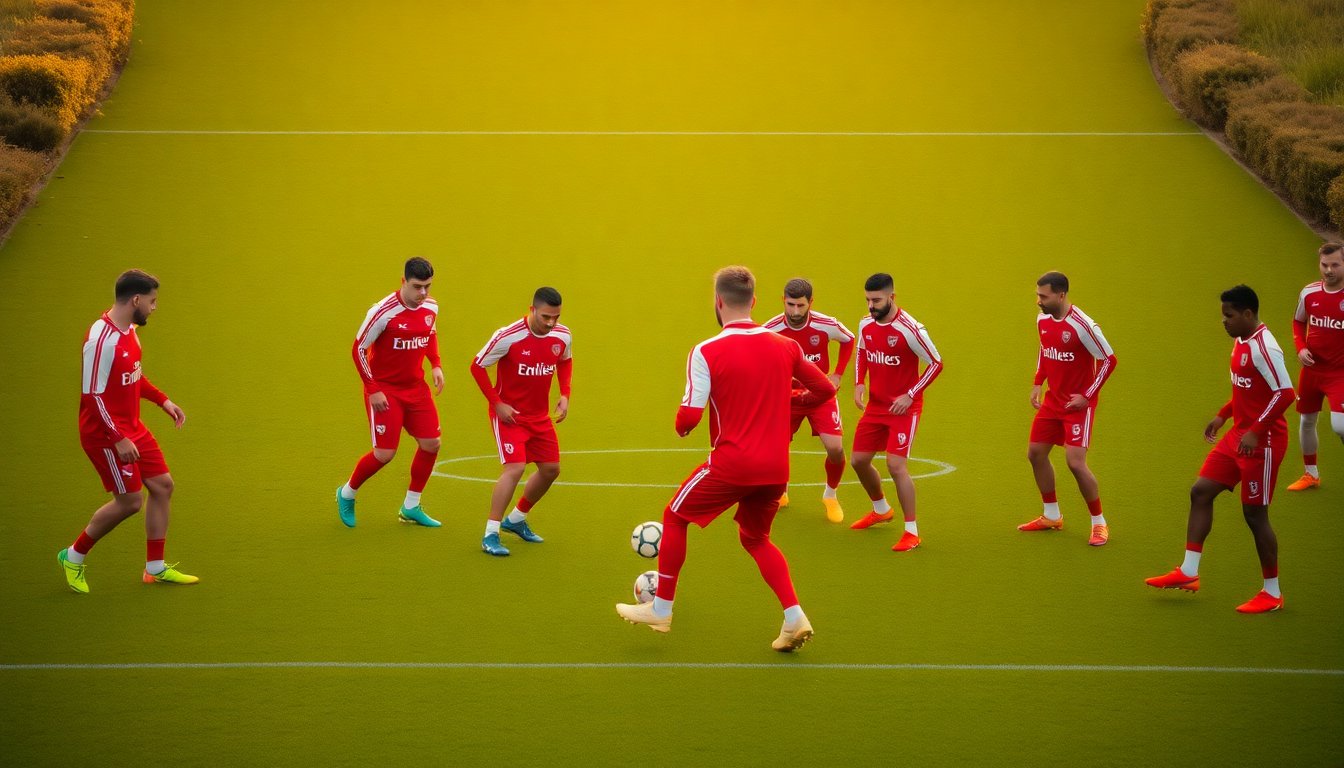Table of Contents
In the competitive arena of English football, Arsenal has emerged as a leader in the Premier League, showcasing significant strength in scoring from set-pieces. Traditionally viewed as a method employed by less skilled teams, the Gunners have transformed dead-ball situations into a major source of goals. Mikel Arteta, the club’s manager, has spearheaded this change, demonstrating that basic tactics can be executed with precision and flair.
Since the start of the previous season, Arsenal has recorded an impressive 23 goals from set-pieces, positioning them as the most effective team in Europe in this area. Their domestic figures are even more striking, with a remarkable 37 goals from corners alone—outpacing every other team in the Premier League significantly. As Arsenal prepares for their match against Crystal Palace, their achievements in set-piece situations warrant closer examination.
The evidence
Mikel Arteta’s foresight regarding the significance of set-pieces dates back a decade. Reflecting on his journey, he recalls a pivotal moment during his coaching education when he recognized the potential advantages of mastering these situations. “Ten years ago, I envisioned it,” Arteta stated. Although not yet in a managerial position, he was already formulating a plan to enhance this aspect of the game.
The reconstruction
Arteta’s coaching journey began after he concluded his playing career with Arsenal in. He joined Pep Guardiola’s staff at Manchester City, where he was exposed to innovative strategies and tactical methodologies. It was during this time that he met Nicolas Jover, who would later become Arsenal’s dedicated set-piece coach. Arteta understood that to excel at set-pieces, a specialized approach was necessary, and he sought to surround himself with the best talent to achieve this goal.
Key players
The integration of set-piece training into Arsenal’s culture has led to remarkable results. Arteta emphasized the need to prioritize this aspect of the game, stating, “We have created a culture, giving that part of the game the importance that it has.” This shift in focus has not only improved their attacking capabilities but also allowed them to adapt to the evolving strategies of their opponents. As teams become increasingly aware of Arsenal’s prowess from set-pieces, the Gunners continue to refine their methods to maintain their edge.
The implications
While Arsenal’s offensive capabilities from set-pieces have garnered attention, their defensive record should not be overlooked. The team has conceded just three goals in the league this season, showcasing a balanced approach to both attacking and defending. This defensive solidity has been complemented by their success in Europe, where they have maintained three consecutive clean sheets in the Champions League.
Arteta understands that achieving records and maintaining a solid foundation is essential for long-term success. He noted, “We want these kinds of records. At the end, we want it to bring the silverware and the trophies.” With aspirations to lift the Premier League title for the first time since 2004, Arsenal’s current form positions them well for a serious challenge as the season progresses.
What happens next
As the season unfolds, Arteta emphasizes the importance of maintaining consistency in all areas of the game. He acknowledges that while their current defensive and offensive records are impressive, there is always room for improvement. “It is only the start of the season. We can get better,” he remarked, demonstrating his commitment to continuous development.
Arsenal’s strategic focus on set-pieces has transformed them into a formidable force in the Premier League. Under Mikel Arteta’s guidance, the Gunners have turned what was once seen as a simplistic tactic into a sophisticated weapon that has redefined their approach to the game. As they continue to build on this foundation, fans eagerly anticipate how far their newfound strengths will take them this season.


